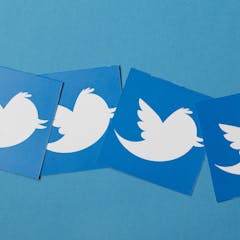
Articles on Information
Displaying 1 - 20 of 41 articles

When people are pervasively disinformed, the very foundations of democracy can end up on shaky ground.

Life seems to just mysteriously ‘emerge’ from non-living parts, such as elementary particles.

We can now store information outside of our brains, and use computers to retrieve it. That ought to make learning and remembering easy, right?

With the proliferation of social media platforms, smart devices and apps, the demands on our attention have never been greater. But how is this affecting our ability to process and retain information?

Even after January’s storms, California faces a water-scarce future. An economist and an engineer propose a way to test higher water prices as a conservation strategy without hurting low-income users.

Over the past 16 years, Twitter has amassed an incredible amount of user-generated data which contains a detailed and extensive record of cultural moments. Musk’s takeover threatens these archives.

There may be ways to check if our universe is just simulated entertainment for an advanced, alien species.

Critical thinking means seeking out new information – especially facts that might run contrary to what you believe – and being willing to change your mind. And it’s a teachable skill.

Portions of the internet disappear every day. Preservation of this historical record requires a proactive approach by archivists and everyday citizens.

Maasai in Tanzania use their mobile phones all the time – usually to communicate with people they already know. But dialing errors can also breed friendships and business opportunities.

The growth in information production appears unstoppable.

A philosopher writes about why many of us are feeling tired with the constant onslaught of information coming at us.

New research suggests individual bees are born with one of two learning styles – either curious or focused. Their genetic tendency has implications for how the hive works together.

About half of environmental scientists working for government had been prohibited from communicating scientific information.

Research shows that governments, more often than not, shut down the internet to hide gross violations of human rights.

Parents may try to shield children from information about COVID-19, but their important questions need answering.

Integrating technology into schools involves understanding the dynamic relationship between technology, how it’s used in the classroom and the content of the curriculum.

Science communication online is important to the intellectual work of scientists.

When the organization of a social network impacts political discussion on a large scale, the consequences can be enormous.

New research does away with dark matter by putting ‘entropy’, a measure of disorder, at the heart of the universe.
